Tehran Summons UK Envoy To Protest New Sanctions
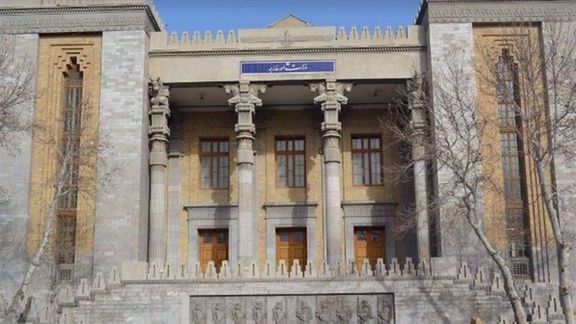
Iran has summoned Britain's ambassador in Tehran, Isabelle Marsh, in response to a series of fresh sanctions imposed by the United Kingdom.

Iran has summoned Britain's ambassador in Tehran, Isabelle Marsh, in response to a series of fresh sanctions imposed by the United Kingdom.
Foreign Secretary James Cleverly announced on Thursday that sanctions will expand following continued human rights violations and hostile actions against its opponents on UK soil.
The amped up sanctions from the UK, one of a long list of countries sanctioning the regime, were branded "continued destructive and interventionist actions" according to state news agency IRNA, Iran's foreign ministry slamming the move as "an illegal and interventionist action".
The new sanctions by London will expand existing penalties imposed by creating new criteria under which individuals and entities can be targeted.
According to AFP, they include any Iranian activities "undermining peace, stability and security in the Middle East and internationally", and the "use and spread of weapons technologies from Iran".
Moscow has been accused of using Iranian-made kamikaze drones in Ukraine, while Tehran is a close strategic ally of Syria, and supports Lebanon's Hezbollah.
The latest measures add to ones already taken by the UK over the Islamic Republic’s response to nationwide protests following the death in custody of Mahsa Amini in September.
The 22-year-old Kurdish-Iranian had been detained for allegedly violating Iran's strict hijab rules for women.
Since the start of 2023, London has imposed dozens of asset freezes and travel bans on Iranian individuals and organizations including IRGC commanders and Tehran's prosecutor general for their role in human rights abuses.
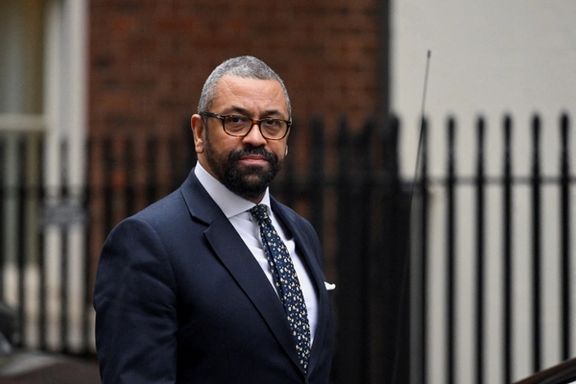
The UK government has introduced sanctions on more than a dozen more Iranian individuals and entities over human rights violations.
The list of 13 individuals and entities responsible for human rights abuses in Iran, released by the UK Foreign Office on Thursday, includes prison governors overseeing torture and inhumane treatment and organizations charged with collecting private information of regime opponents.
It also covers individuals leading the repression of women through Iran’s compulsory hijab laws, according to a statement by the UK government.
The sanctioned individuals include Abdolhossein Khosropanah, the secretary of Iran's Supreme Council of the Cultural Revolution; Mohammad-Amin Aghamiri, the secretary of Supreme Council of Cyberspace; and Moslem Moein, the chief of the IRGC's Basij Cyberspace Organization.
The IRGC's Cyber Defense Command (CDC) which monitors the emails, websites and online activities of regime opponents, and the Supreme Council of the Cultural Revolution (SCCR) which sets Iran’s policies on cultural and educational matters, including wear of the hijab were also sanctioned by the UK government on Thursday.
"Today the UK has sent a clear message to the regime – we will not tolerate this malign behavior and we will hold you to account," said UK Foreign Secretary James Cleverly in a statement.
"Our new sanctions regime will help to ensure there can be no hiding place for those who seek to do us harm," he added.
Cleverly also said that "the Iranian regime is oppressing its own people, exporting bloodshed in Ukraine and the Middle East, and threatening to kill and kidnap on UK soil."
The Islamic Republic has, in the past few years, been found to have attempted to carry out terror acts on UK soil, including plots to kidnap Iran International journalists, which forced the TV channel to relocate its activities from the London office to Washington DC due to the UK’s inability to protect its citizens on its soil.
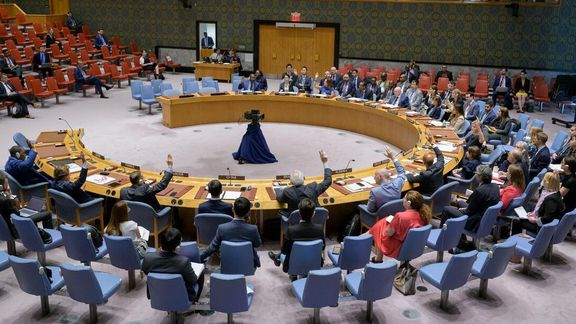
As the UN Security Council held a session on Iran, Britain says it is mulling over a new sanctions regime giving it greater powers to target the regime’s decision makers.
The Thursday session was held to brief the Council on the Joint Comprehensive Plan of Action (JCPOA) and the implementation of resolution 2231, whose clauses are justifying the UK, France and Germany retaining ballistic missile sanctions set to expire in October under the defunct 2015 nuclear deal.
Member states argue that both Iran and Russia have violated their obligations under UN Security Council Resolution 2231 by participating in the transfer of UAVs without obtaining advance approval from the UN Security Council. The United States, France, Germany and the United Kingdom say the arms supplies breach a clause of the resolution, justifying the possibility of snapback, under which multilateral sanctions would come back onto Tehran.
Resolution 2231 is a 79-page document submitted at the time by the US – S/2015/546– that listed categories of weapons needing prior Security Council approval. S/2015/546 refers to drones “capable of delivering at least a 50kg payload to a range of at least 300km,” and while Iranian-made drones can have a range of over 1,000km they carry a slightly lighter payload. There would be a clearer violation if Iran transferred Fateh-110 and Zulfiqar missiles.
US envoy to the UN Robert A. Wood said at the session that Washington remains gravely concerned with “Russia’s use of Iranian drones against Ukrainian cities and civilian infrastructure in its unprovoked war against Ukraine.”
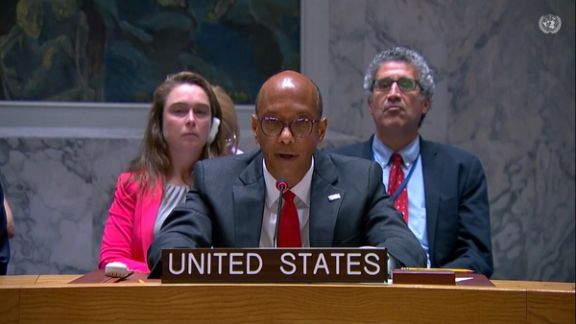
He said Russia’s use of Iranian-made Shahed-136 drones must be investigated as it clearly constitutes a violation of UN Security Council Resolution 2231, Annex B, Paragraph 4, urging the council to send teams of investigators to Kyiv to examine the debris from these weapons and to review material recovered by the United Kingdom.
“It is no secret that Iran’s UAV development and proliferation pose a global threat. That is why the transfer of these items was prohibited under 2231,” he added, noting that despite proof of Iran’s complete disregard for its obligations under Resolution 2231, Tehran continues to deny its role in the damage caused by its weaponry in Ukraine.
The US called on the Council to address “any and all violations of Resolution 2231 given the implications for not only peace and security in the Middle East, but also in Ukraine and the rest of the world,” reiterating “calls for the Secretary-General to update the Council on his assessment of Iranian made UAVs recovered in Ukraine within the next 30 days.”
He also referred to Iran’s test of a medium range ballistic missile in May, saying that the launch was inconsistent with “paragraph 3, which calls upon Iran not to undertake any activity involving ballistic missiles designed to be capable of delivering nuclear weapons, including launches using such ballistic missile technology.”
“Iran’s ballistic missile activity – especially in light of Tehran’s nuclear ambitions and its threatening rhetoric – is an enduring threat to regional and international peace and stability,” he said, stating that even after certain restrictions in Resolution 2231 terminate, the United States will continue to take vigorous measures to counter this threat and block the proliferation of sensitive ballistic missile-technology to and from Iran.
Rosemary A. DiCarlo, the UN Security Council’s Under-Secretary-General for Political Affairs, said that the council “examined information related to paragraph 4 of annex B,” pertaining to the supply, sale or transfer to or from Iran of all items, materials, equipment, goods and technology.
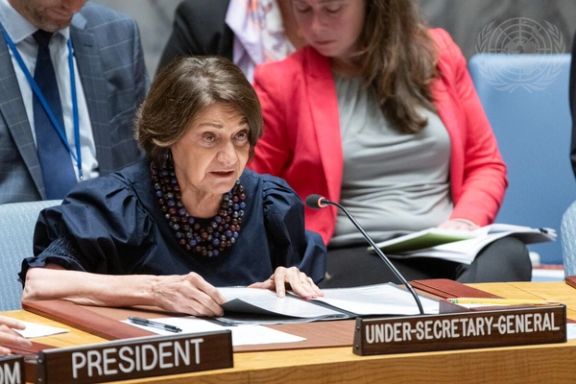
She added that they received information from the United Kingdom about ballistic missile parts seized by the British Royal Navy in February 2023, in international waters in the Persian Gulf.
“The United Kingdom shared imagery of the seized components and its analysis that the components were of Iranian origin and transferred in a manner inconsistent with resolution 2231,” she said, adding that France, Germany and the United Kingdom also conveyed their view that some of the seized components are controlled items listed in the Document S/2015/546 and that their transfer without prior approval of the Council was therefore inconsistent with the resolution.
However, she added that Iran and the Russian Federation have “stated that there was no evidence linking the intercepted vessel and its cargo to Iran, and no clear indication that the seized components were of Iranian origin. “We continue to analyze the available information," she said.
DiCarlo also expressed serious concerns about Iran’s highly enriched uranium as presented by the UN nuclear watchdog’s latest report but reiterated that the JCPOA remains the best available option for ensuring a peaceful nuclear program by Iran, urging dialogue among its parties.
“Iran now has a total enriched uranium stockpile of more than twenty times the allowable amount under the (JCPOA). This includes increased quantities of uranium enriched to 20% and 60%,” she said.
She also welcomed the March agreement between Iran and the International Atomic Energy Agency (IAEA) “to expedite… the resolution of outstanding safeguards issues” and “to allow the IAEA to implement further appropriate verification and monitoring and reporting activities”.
Earlier in the day, Cleverly said Britain seeks more leeway in targeting the Islamic Republic’s authorities, including those involved in weapons proliferation and threats against British nationals.
Britain had seen an "unprecedented level of aggression" from Iran and accused the country of trying to "silence dissenting voices" in the UK, he said.

Iran is exporting the highest amount of crude oil in five years, although it offers discounts of up to $30 per barrel The Wall Street Journal reported Thursday.
The report confirms estimates that Iran shipped 1.6 million barrels per day in May and June, up from 250,000 barrels in 2019 and 2020, just after the United States imposed full sanctions.
Tehran keeps its export and revenue details as state secret, but the WSJ quoted and Iranian official as saying that it offers deep discounts of up to $30 per barrel. This confirms earlier reports by Iran International that Tehran is selling its oil at half price, and that was one reason why it is facing financial problems, high inflation and an economic crisis.
Iran needs around $50 billion from oil exports to balance its budget, but estimates say actual annual proceeds are around $25 billion.
Another reason for Iran’s oil revenues being probably less than $25 billion is the costs involved in illicit shipments to evade sanctions, and losing money in trying to repatriate the money in hard currencies. Iran’s banking system is also under US sanction and any oil revenues are laundered through intermediaries.
The report also says that a significant part of the increased export volumes goes to Venezuela and Syria, which probably does not generate much profit, as both countries are themselves in financial crisis. Shipments to Syria might even be partly free assistance for Tehran’s war-torn ally.
A former oil official told a Tehran website Thursday that Iran is refurbishing refineries in Venezuela and trying to refine oil there that can be somehow offered in the world market.

Iran's Foreign Minister Hossein Amir-Abdollahian, in Baku to attend a summit of the Non-Aligned Movement (NAM), was absent from the ministerial group photo.
The Iranian website Rouydad24 on Wednesday questioned the absence of the country's top diplomat and expressed surprise that none of the media representatives accompanying the Iranian foreign minister in Baku published any of the group photos.
Amir-Abdollahian's absence at the NAM forum - a gathering of 120 countries that are not formally aligned with or against any major power bloc - stands in contrast to a similar event held in 2019 in which his predecessor, Mohammad Javad Zarif, and former President Hassan Rouhani stood on the front rows of group photos.
Amir-Abdollahian's visit to Baku and his meetings with Azerbaijani officials came after months of tensions between the two neighbors.
Tensions have been high between Iran and Azerbaijan since November 2022 when both sides accused each other of engaging in terrorism and espionage. Iran has also suggested Azerbaijani involvement in the October 26 attack in Shiraz claimed by the Islamic State group (ISIS-Daesh).
Azerbaijan closed its embassy in Tehran after an armed attack on Azerbaijan’s embassy in Tehran in January and later expelled four Iranian diplomats over what it called “provocative actions” which may refer to Iran's several military drills along the border with Azerbaijan in the past year including the latest in October.
Tehran has also accused Baku of harboring Israeli intelligence and military elements that plan to use its territory in a possible attack against Iran’s nuclear facilities.
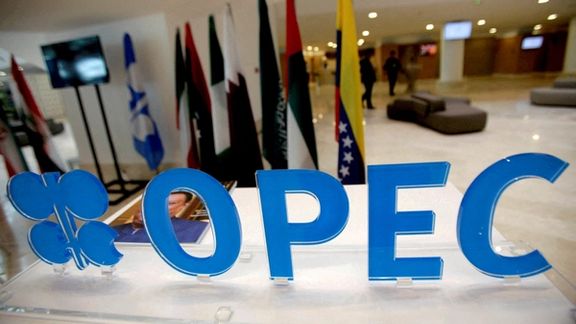
Iranian Oil Minister Javad Owji and Saudi Arabia counterpart Prince Abdulaziz bin Salman met on the sidelines of the OPEC conference in Vienna on Wednesday.
However, the source of the news is Iran’s government news agency IRNA, and so far, there have been no reports from the Saudi side on the meeting.
The two countries renewed diplomatic ties in March after seven years of animosity, in a deal negotiated by China, opening the way to potential bilateral cooperation in different fields.
"Owji and bin Salman discussed bilateral issues between Iran and Saudi Arabia, including investment in the oil and gas industry and exploring the possibility of joint investments," IRNA said.
"Issues such as hydrocarbon trade and the development of common fields were also among the topics of discussion."
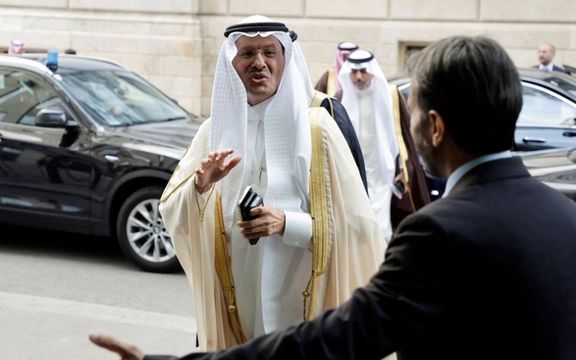
Tehran has been trying to imply that the resumption of relations with Riyadh will bring an economic windfall, and that the Saudis are ready to invest in Iran’s energy sector, which is controlled by the state and by dozens of companies affiliated with the Revolutionary Guard.
The Iranian regime, hard pressed by an economic crisis and popular opposition at home, often uses diplomatic developments to give hope to the population that the economy will soon improve.
Iran needs around $240 billion in investments to overhaul its energy sector suffering from decades of neglect, however, the United States has an array of sanctions in place going back to mid-1990s, that would make any foreign investment highly unlikely.
A dispute over maritime boundaries in the Western end of the Persian Gulf, where there are proven gas and oil deposits, has flared up in recent days, as both Kuwait and Saudi Arabia have underscored that the field is within their boundaries and Iran should negotiate to determine the extent of its jurisdiction in the area.
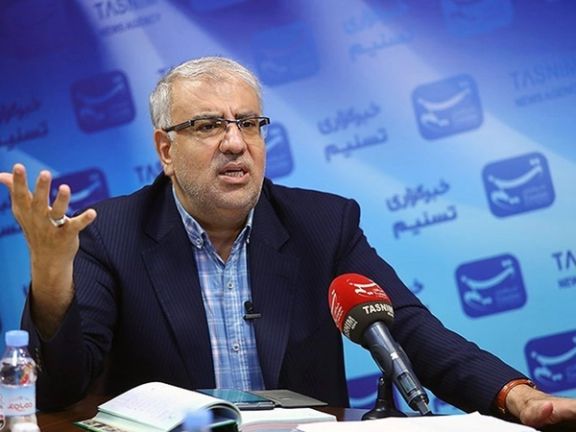
Citing the foreign ministry, Saudi state news agency SPA said on Tuesday that the kingdom enjoys “full rights” along with Kuwait to the disputed gas and oil field, a declaration that came after Tehran said it was preparing to start drilling.
It is not clear from the IRNA report if the issue was discussed in Vienna between the two oil ministers. Iranian government media this week have been silent about the maritime dispute.
Called Arash in Iran and Durra or Dorra by Saudi Arabia and Kuwait -- the offshore field was discovered in 1967 and is estimated to have a total proven reserves of around 310 million barrels of oil and 20 trillion cubic feet of gas.
Iran claims any development without its consent breaks international laws, insisting that 40 percent of the field is in its territorial waters. However, Saudi Aramco Gulf Operations Company signed a Memorandum of Understanding in December with Kuwait Gulf Oil Company (KGOC) to develop the joint gas field, leaving Iran out of the project. Outraged by the snub, Iran said it has a stake in the field and called the Saudi-Kuwaiti agreement "illegal".
Within OPEC, Iran is exempt from production cuts agreed with Russia because it has exported less than its quota since 2018, when former US President Donald Trump withdrew from the 2015 JCPOA nuclear deal and imposed sanctions on Tehran.
Lately, Iran has boosted daily exports to around 1.5 million barrels from a low of around 250,000 in 2019-2020, but that is still below its OPEC quota.